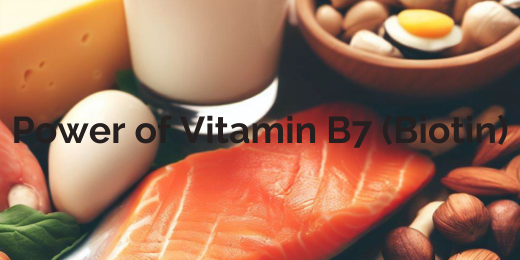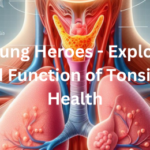Introduction to benefits of Vitamin B7
Vitamin B7, also known as biotin, is a crucial nutrient with a myriad of benefits for overall health. Biotin is a water-soluble vitamin that plays a vital role in various physiological processes in the body. It is involved in energy metabolism, supporting the breakdown of carbohydrates, fats, and proteins, thereby providing the body with the fuel it needs. Additionally, biotin is essential for maintaining healthy hair, skin, and nails, promoting their strength and vitality.
It also contributes to the normal functioning of the nervous system, supporting cognitive health and neurotransmitter synthesis. Biotin is found naturally in a variety of foods, including eggs, nuts, seeds, and certain vegetables. By incorporating biotin-rich foods into your diet or considering biotin supplementation, you can enjoy the numerous benefits of Vitamin B7 and support your overall well-being. Understanding the functions of vitamins is essential for maintaining overall health and well-being.
Benefits of Vitamin B7 (Biotin)
Vitamin B7 offers a range of remarkable benefits for our body. One of the notable advantages is its ability to promote healthy hair, skin, and nails. Biotin plays a crucial role in maintaining the health and integrity of these external features by nourishing the cells responsible for their growth and strength. Moreover, Biotin is essential for supporting energy metabolism and cellular function, facilitating the conversion of food into energy and enabling vital biochemical processes.
Additionally, this vitamin contributes to maintaining a healthy nervous system, ensuring proper nerve function and communication. Incorporating Biotin-rich foods or supplements into your diet can unlock these incredible benefits of Vitamin B7 (Biotin), enhancing your overall well-being. Similarly, understanding the benefits of Vitamin B7 (Biotin) and Vitamin B5 (Pantothenic Acid) empowers individuals to optimize their well-being and ensure the proper functioning of the nervous system and overall health.
Food Sources Rich in Vitamin B7
Incorporating biotin-rich foods into your diet can bring about a multitude of benefits associated with Vitamin B7. There are several natural sources of biotin that you can include in your daily meals. Foods such as eggs, nuts, seeds, and legumes are excellent sources of this essential vitamin. Incorporating these biotin-rich foods into your diet can provide you with the necessary nutrients to promote healthy hair, skin, and nails, as well as support energy metabolism and cellular function.
Including foods like salmon, avocados, and sweet potatoes can also boost your biotin intake. By embracing these natural sources of biotin, you can harness the benefits of Vitamin B7 (Biotin) and support your overall health and well-being. Similarly, Vitamin B2, or riboflavin, is crucial for overall well-being, supporting healthy skin, promoting good vision, and aiding in fat metabolism.
Biotin Deficiency and Symptoms
Biotin significantly contributes to the overall health and well-being of our body. Understanding biotin deficiency is essential to recognize its potential impact on our system. When the body lacks an adequate amount of biotin, several signs and symptoms may manifest. Hair loss, brittle nails, and dry skin are common indications of biotin deficiency. Additionally, fatigue, muscle pain, and cognitive impairment can also occur.
Fortunately, incorporating biotin-rich foods or supplements into our diet can provide numerous benefits. Biotin supports healthy hair growth, strengthens nails, promotes radiant skin, and improves energy levels. It also contributes to proper brain function and enhances overall cognitive performance. Taking advantage of the benefits of Vitamin B7 (Biotin) can significantly improve our overall health and vitality. Similarly, the significance of vitamin C lies in its role as a powerful antioxidant that supports the immune system, skin health, and wound healing.
Biotin Supplements and Dosage Recommendations
When it comes to exploring biotin supplements, understanding the recommended daily intake and dosage guidelines is crucial for optimal results. Vitamin B7 is available in supplement form and offers a range of benefits. The recommended daily intake of biotin varies depending on age, gender, and specific health conditions. For adults, a typical dosage ranges from 30 to 100 micrograms per day.
However, individuals with biotin deficiency or certain health conditions may require higher doses, as advised by healthcare professionals. It’s important to follow the dosage guidelines provided on the supplement packaging or consult a healthcare provider for personalized recommendations. By adhering to the recommended intake and dosage, individuals can harness the benefits of Vitamin B7 (Biotin) and support their overall health and well-being.
Cautions and Considerations
When considering biotin supplementation, it is important to be aware of the potential side effects that may occur. While biotin is generally safe and well-tolerated, some individuals may experience adverse reactions such as skin rashes, digestive issues, or an allergic reaction. It is advisable to consult with a healthcare professional before starting any supplementation regimen, especially if you have any underlying health conditions or are taking medications that may interact with biotin.
By seeking expert guidance, you can ensure that the dosage and duration of biotin supplementation are appropriate for your specific needs. Despite the potential side effects, it is crucial to recognize the numerous benefits of Vitamin B7 (Biotin) for overall well-being. Biotin plays a vital role in supporting healthy hair, skin, and nails, as well as aiding in energy production and maintaining a healthy metabolism. Therefore, incorporating biotin-rich foods or supplements into your diet can contribute to your overall health and vitality.



